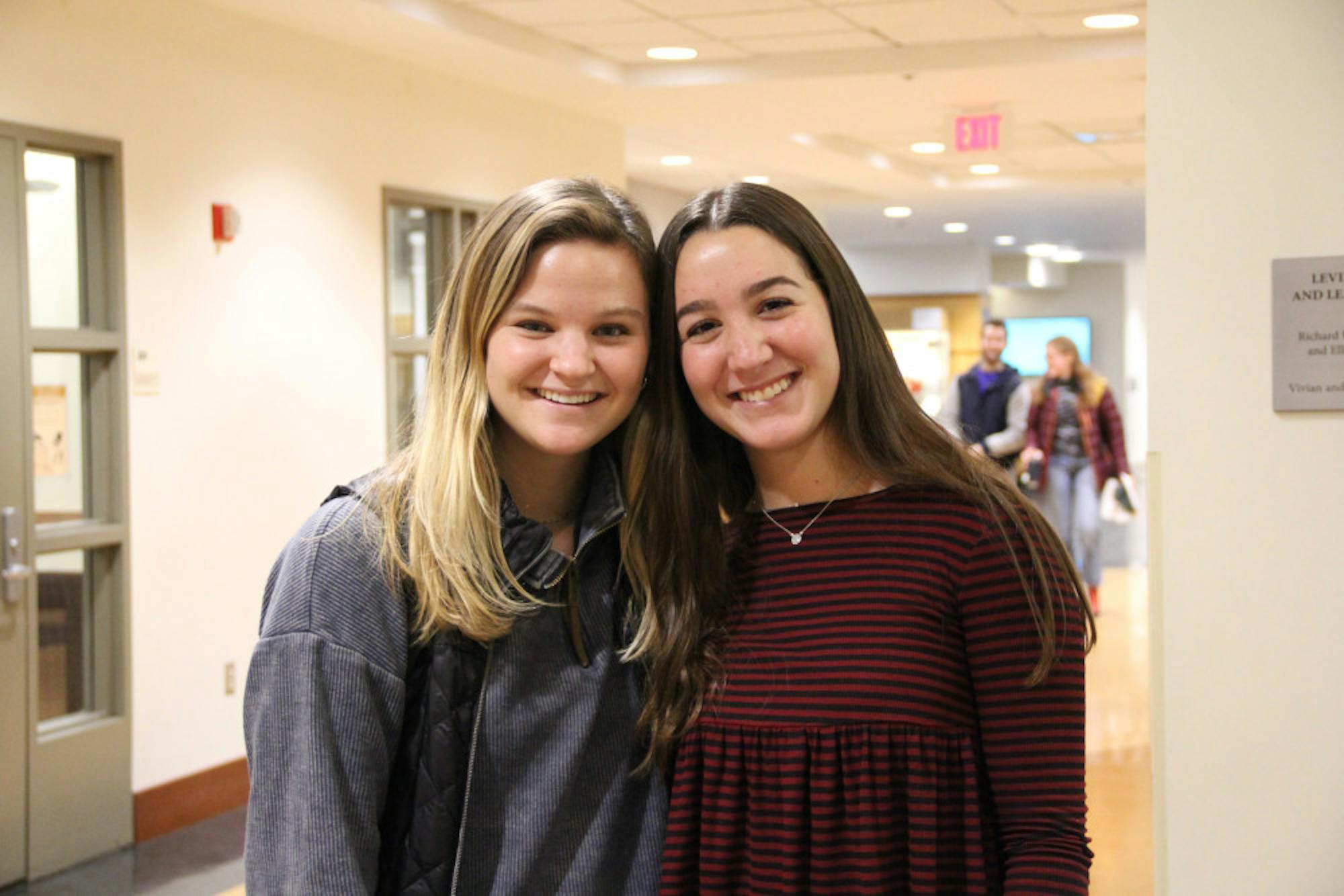For students seeking to effect change from inside the classroom, a course in the Tufts Entrepreneurship Center (TEC) provides tangible opportunities to do so. In “Philanthropy, Social Enterprise, & Community” (ELS-0194) students get to try their hand at philanthropy by awarding grants of $25,000 to local nonprofits in the cities of Medford, Somerville, Cambridge and Boston as well as to head their own service project.
Abigail Nelson, a current student in the course, discussed how the class gives students an opportunity to lead a service-oriented nonprofit.
“I think it's been super interesting,” Nelson, a sophomore, said. “As a college student, you’re never put into the shoes of being in charge of a service project. You usually want to be a volunteer or sign up for a club that volunteers.”
Nelson discussed how she was initially interested in the class because of its focus on grant-giving and nonprofit management.
"I was just really curious [about] the ins and outs of how nonprofits receive grants,” Nelson said. “How grants are given, what people look for in certain nonprofits. That's why I chose to take the class, and it's really been beneficial so far.”
Julia Garfinkel, a student minoring in ELS and also taking the class, said they have a grant to give to local nonprofits.
“This class is about learning about nonprofits and philanthropy,” Garfinkel, a sophomore, said. “We got a grant of $25,000 to give to nonprofits. Different nonprofits apply to us, and we choose which ones to give to.”
Nelson expanded on which nonprofits and communities they want to impact.
“We aspire to support organizations for better response to trauma experienced by underserved youth populations, and we hope to affect the Tufts community, which is Somerville, Medford, Chinatown, Fenway, Mission Hill and nonprofit organizations in those areas,” Nelson said.
Nelson also described the service aspect of the course, for which their class created a service project to impact the Tufts community.
“Our class was given the task to find something that we're all passionate about,” Nelson said. “So we were talking about people that might not get the praise or the attention they deserve, and what came to our minds were the custodial workers at Tufts.”
Nelson discussed how the work of the custodial staff at Tufts often goes unnoticed and unappreciated.
“We noticed that while living in dorms and working in the library, for example, people just don't clean up after themselves,” Nelson said. “And as a classroom we felt compassionate that people need to realize who is actually cleaning up after them.”
To tackle this issue, the class created an awareness campaign to improve students’ appreciation and acknowledgment of the custodial staff.
In an email to the Daily, Nelson shared their mission: “As a class, we aim to bring visibility and express our gratitude towards the custodial staff and promote/implement more conscientious behavior among Tufts students.”
Garfinkel described the ways in which they plan to increase awareness and appreciation for custodial staff.
“We designed different posters to hang up in all the dorms, near trash cans, bathrooms, common areas, to remind people to clean up,” Garfinkel said.
Garfinkel also told the Daily in an email that they tried to get in touch with C&W services, the company Tufts contracts for custodial work, to learn more about the custodial staff and to ask if there would be a good time to get them all together for an appreciative gesture.
“We were hoping to contact them so that we could learn more about the custodial staff, their hours, locations, and languages, so that we could make thank you cards to give to them,” Garfinkel wrote. “We also wanted to learn more about what they would appreciate from us.”
Garfinkel said the class encountered difficulties getting in contact with the custodial staff through C&W Services. The Daily was not able to reach C&W Services for comment.
As a result, Nelson said that they have focused their project on raising awareness for custodial workers.
“So, we're kind of just taking it into our own hands by creating our own posters and talking to people on our own,” said Nelson. “We still want to get that word out there and make sure that the students know that even if [they’re] not technically Tufts workers, we still need to treat them with respect.”
Meghana Nemali, a senior in the class who is studying international relations, discussed the focus of their project as well as the limited timeline they have.
“I think there is a large momentum behind the Tufts student body, for example around dining hall workers,” she said. “The awareness about that issue grew a lot, and we wanted to create a similar type of general awareness of the struggle the custodial workers face because we realized we wouldn't be able to tackle all of the systemic issues with our limited timeline.”
Ultimately, Garfinkel said that this class is different from others because they are expected to get out and do real-life projects instead of only learning about them.
“In classes, most of the time really you're learning about how you would do something in the future or how other people do it,” she said. “But here we're learning and at the same time directly impacting people.”
TEC brings philanthropy, social enterprise into classroom

Julia Garfinkel and Abbie Nelson, sophomores in the TEC course on philanthropy and social enterprise, pose for a portrait in Tisch Library on Nov. 20, 2019.





